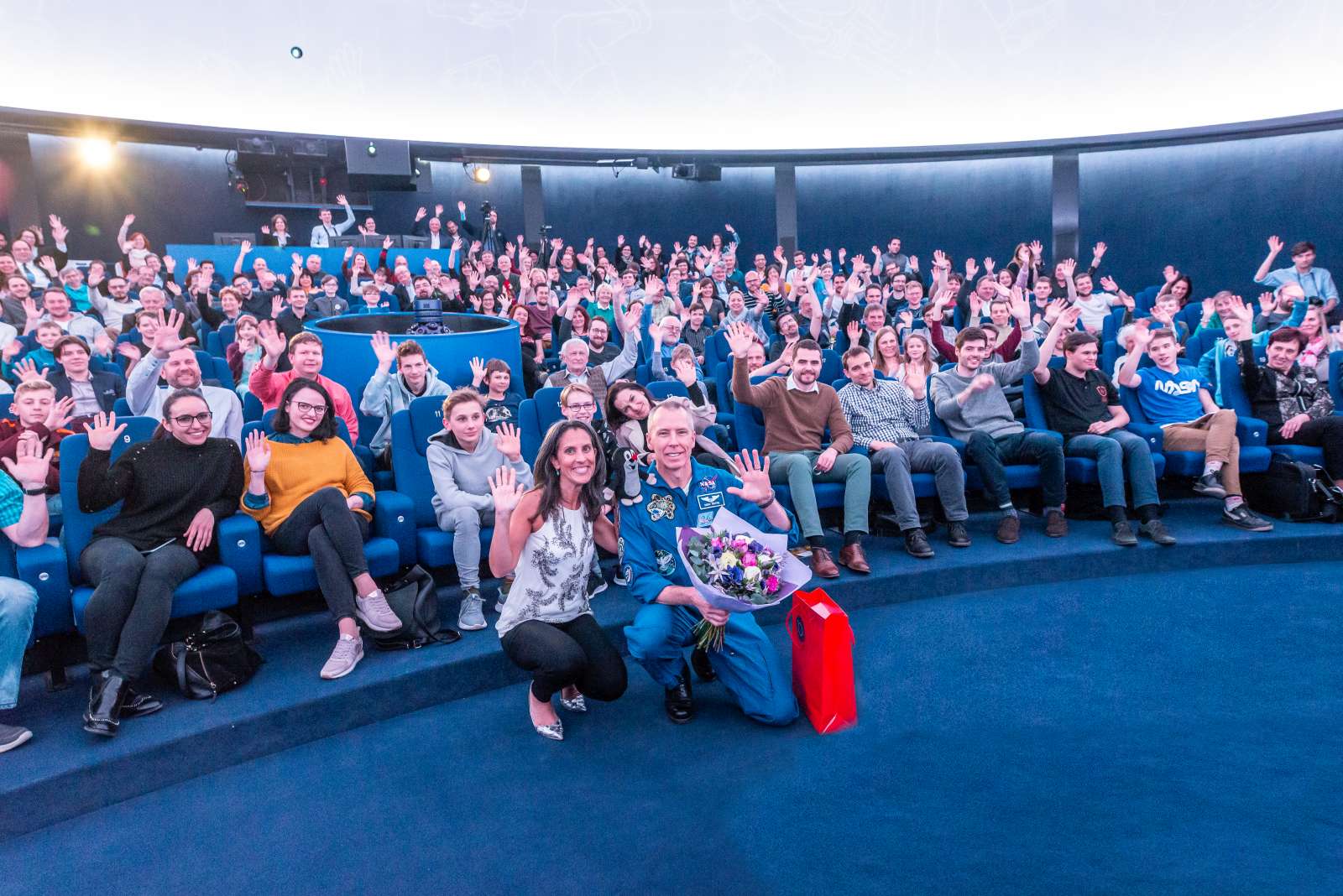
Living aboard the International Space Station with Little Mole
16. 04. 2019
What does everyday life aboard the International Space Station look like? What are the effects of microgravity on human health? What changes do living organisms undergo during long-term spaceflights, how they react and adapt to weightlessness in space? How does space research contribute to the development of science and technology? These are only some of the many questions addressed to NASA astronaut Andrew Feustel during his official visit to the Czech Republic this month.
NASA astronaut Andrew Feustel and his wife Indira arrived in the Czech Republic at the invitation of the Czech Academy of Sciences, and this time they did not stay exclusively in the capital of Prague, but extended their visit to three Moravian cities: Brno, Olomouc and Ostrava. Apart from their official meetings with representatives of the Academy of Sciences and municipal authorities, they held a series of lectures for university students and the public.
Andrew Feustel’s talks about the space, space exploration and space flights attracted enormous attention and were enthusiastically welcomed. It is no wonder, since he ranks among the most experienced US astronauts. He has spent a total of 226 days in space on his three flights and conducted 9 spacewalks, which took 61 hours and 48 minutes altogether. In 2009, he launched on the space shuttle Atlantis to service the Hubble Space Telescope and improve its capabilities, as well as on the space shuttle Endeavour in 2011, which delivered the Alpha Magnetic Spectrometer to the International Space Station (ISS).
Last year Andrew Feustel served as commander on the International Space Station for Expedition 55/56. He made three spacewalks during the mission to maintain and upgrade the ISS. Besides that, the crew also carried out numerous scientific experiments focused, for example, on the behaviour of atoms and microbial growth in extreme conditions of microgravity, as well as other physical and biological studies aboard the space station.
Drawing on his wife’s family roots in the Czech Republic, Andrew Feustel took several items related to the Czech history and culture aboard the space shuttles and the ISS, especially the famous Czech cartoon character Little Mole. The local enthusiastic audiences, of course, highly appreciated the fact. Nevertheless, the main attention turned to Andrew Feustel’s space missions. They were also the main topic of questions addressed to the US astronaut by the Czech Academy of Sciences.
Interview with Andrew Feustel (audio file):
Prepared by: Jana Olivová, Division of External Relations of the CAO of the CAS
Photo: Jana Plavec, Division of External Relations of the CAO of the CAS
Read also
- Evolution, alive and well. What lies at the heart of biodiversity?
- From an evolutionary POV, vision has a great benefit–cost ratio, researcher says
- Badminton buzz: Tournament draws 76 athletes from the Academy’s institutes
- Unique reproductive strategy confirmed in another frog species in Moravia
- Hydrochemist Martin Pivokonský on how to improve water and wastewater treatment
- Involved in groundbreaking research, Ukrainian archeologist now works at the CAS
- The first human presence in Europe securely dated to 1.4 million years ago
- The CAS visited by chess grandmaster and Russian opposition activist Kasparov
- The CAS will support scientists whose research is at risk in their home country
- Unravelling the mystery of biodiversity – with a little help from the fruit fly
The Czech Academy of Sciences (the CAS)
The mission of the CAS
The primary mission of the CAS is to conduct research in a broad spectrum of natural, technical and social sciences as well as humanities. This research aims to advance progress of scientific knowledge at the international level, considering, however, the specific needs of the Czech society and the national culture.
President of the CAS
Prof. Eva Zažímalová has started her second term of office in May 2021. She is a respected scientist, and a Professor of Plant Anatomy and Physiology.
She is also a part of GCSA of the EU.